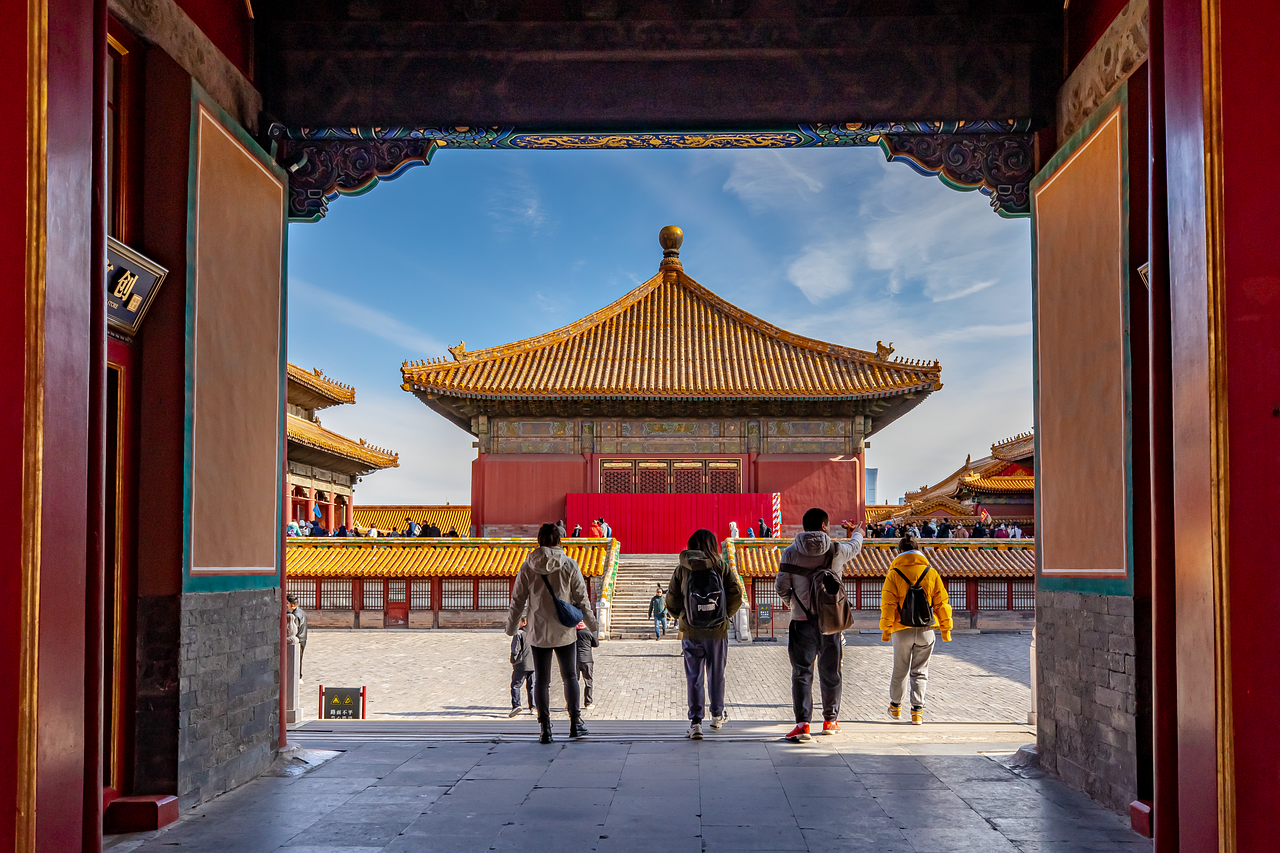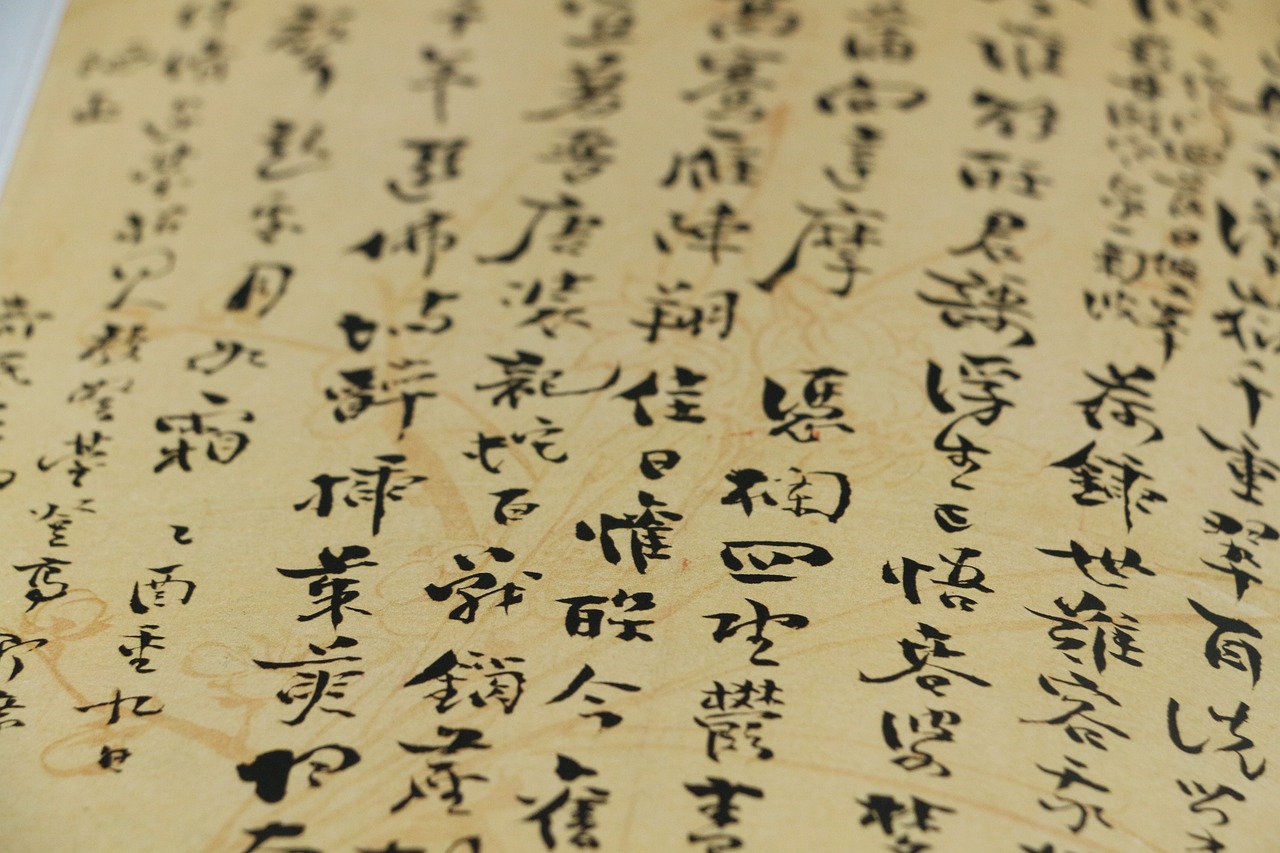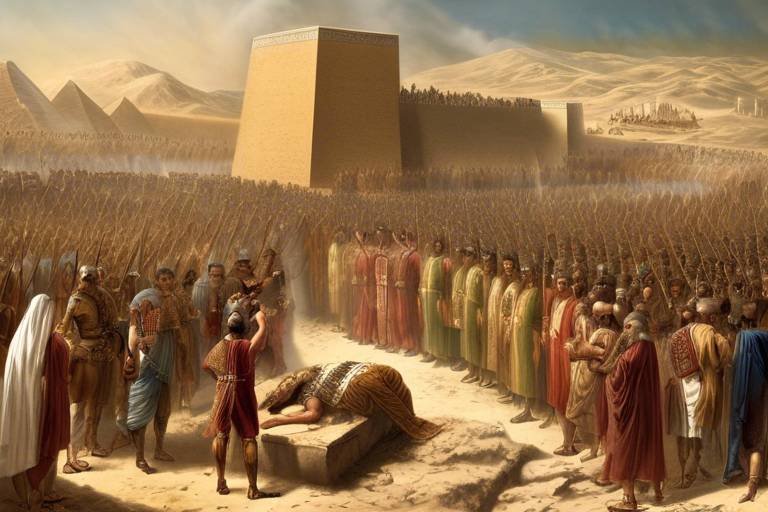The Mystery of the Ancient Chinese Dynasties' Philosophies
Delve into the enigmatic world of ancient Chinese dynasties' philosophies, where profound beliefs and teachings shaped the very fabric of governance, societal values, and cultural heritage. As we unravel the mysteries of these philosophical doctrines, a fascinating journey awaits, offering profound insights into the intricate tapestry of ancient Chinese civilization.
From the ethical and moral precepts of Confucianism to the mystical allure of Taoism, each philosophical school unveils a unique perspective on life, governance, and spirituality. The strict authoritarianism of Legalism contrasts sharply with the universal love advocated by Mohism, creating a rich tapestry of ideologies that once defined the ruling elite of ancient China.
Central to Chinese philosophy is the concept of Yin and Yang, symbolizing the delicate balance of opposing forces in nature and society. The Five Elements theory further elucidates this harmony, correlating elements like wood, fire, earth, metal, and water with various aspects of existence, from governance to personal well-being.
As we journey through the annals of time, the evolution of thought in the Neo-Confucianism era emerges, blending Confucian principles with Buddhist and Daoist influences. This synthesis of ideologies reflects the dynamic nature of philosophical discourse during the Song, Yuan, and Ming dynasties.
The enduring philosophical legacy of ancient Chinese dynasties continues to resonate in modern Chinese culture, governance, and societal values. As we ponder the profound teachings of the past, we gain a deeper appreciation for the enduring impact of these philosophical traditions on contemporary Chinese society.

Confucianism
Exploring the profound philosophical beliefs and teachings that shaped the ruling dynasties of ancient China, offering insights into their governance, societal values, and cultural legacy.
Confucianism, a cornerstone of ancient Chinese philosophy, revolves around the ethical and moral principles advocated by the revered sage Confucius. Emphasizing the importance of filial piety, respect for elders, and harmony within society, Confucianism played a pivotal role in shaping Chinese governance and societal structure across various dynastic periods.
Confucian teachings prioritized the cultivation of virtues such as benevolence, righteousness, propriety, wisdom, and faithfulness, aiming to create a harmonious and well-ordered society. The **Confucian** emphasis on education and the **importance** of **morality** in governance influenced the selection and training of officials, promoting a meritocratic system based on **virtue** and **competence**.
Moreover, the concept of the Mandate of Heaven, a central tenet in Confucian thought, justified the legitimacy of rulers based on their moral character and ability to govern justly. This belief system provided a **philosophical** foundation for **dynastic** rule and guided **emperors** in **maintaining** **social** order and **stability**.

Taoism
Taoism, also known as Daoism, is a philosophical and spiritual tradition that emphasizes living in harmony with the Tao, which can be translated as "the Way" or "the Path." This ancient Chinese philosophy is deeply rooted in nature and the belief that everything in the universe is interconnected. Taoism encourages individuals to embrace simplicity, spontaneity, and the natural flow of life, seeking balance and inner peace.
Central to Taoist teachings is the concept of Yin and Yang, representing the dualistic nature of existence and the need for balance between opposing forces. Yin symbolizes darkness, passivity, and femininity, while Yang represents light, activity, and masculinity. The interplay of Yin and Yang is believed to create harmony and equilibrium in the world.
One of the key texts in Taoism is the Tao Te Ching, attributed to the sage Lao Tzu. This ancient text offers guidance on living a virtuous and authentic life, advocating for humility, simplicity, and non-action. Taoist practices often include meditation, qigong exercises, and the cultivation of qi, or vital energy, to promote health and spiritual well-being.
Unlike Confucianism, which focuses on social order and ethical behavior, Taoism places greater emphasis on individual enlightenment and aligning oneself with the natural rhythms of the universe. Taoist philosophy encourages practitioners to embrace spontaneity, embrace change, and let go of attachments to material possessions and worldly desires.
Throughout Chinese history, Taoism has influenced art, literature, medicine, and martial arts, shaping cultural practices and beliefs. The teachings of Taoism continue to inspire individuals seeking spiritual growth, personal transformation, and a deeper connection to the natural world.

Legalism
Exploring the profound philosophical beliefs and teachings that shaped the ruling dynasties of ancient China, offering insights into their governance, societal values, and cultural legacy.
Legalism was a strict and authoritarian philosophical school that held significant influence during certain dynastic periods in ancient China. It emphasized centralized control, harsh laws, and severe punishment as essential elements of effective governance. The proponents of Legalism believed that a strong and disciplined government was crucial to maintain social order and stability. They advocated for clear laws and regulations enforced through strict measures to ensure obedience and deter dissent.
Legalist thinkers viewed human nature as inherently selfish and prone to wrongdoing, necessitating stringent rules and punishments to deter individuals from deviating from societal norms. The philosophy promoted the idea that a powerful ruler with absolute authority was essential to maintain control and prevent chaos. Legalism aimed to create a well-ordered society through a system of rewards and punishments, where compliance was rewarded and disobedience was swiftly and severely punished.
One of the key figures associated with Legalism is Han Feizi, a prominent Legalist philosopher who contributed to the development and promotion of Legalist principles during the Warring States period. His writings emphasized the importance of a strong legal system, centralized authority, and the use of tactics such as espionage and surveillance to maintain political control.
Legalism's emphasis on strict laws, centralized power, and harsh governance methods set it apart from other philosophical schools in ancient China, such as Confucianism and Taoism, which focused more on ethical behavior, harmony with nature, and personal cultivation. Despite its controversial nature, Legalism played a significant role in shaping the political landscape of ancient China and influencing subsequent dynastic rulers in their approach to governance.
Q: How did Legalism differ from other philosophical schools in ancient China?
A: Legalism differed from schools like Confucianism and Taoism by emphasizing strict laws, centralized control, and harsh punishments to maintain social order.
Q: Who was a key figure associated with Legalism?
A: Han Feizi is a prominent Legalist philosopher known for his contributions to the development and promotion of Legalist principles during the Warring States period.
Q: What was the main belief regarding human nature in Legalism?
A: Legalism viewed human nature as inherently selfish and believed that strict rules and punishments were necessary to prevent individuals from deviating from societal norms.

Mohism
Let's delve into the intriguing philosophical school of Mohism, a distinctive belief system that emerged in ancient China alongside other prominent philosophies. Mohism, founded by the philosopher Mozi, advocated for universal love, frugality, and pacifism as fundamental principles guiding human behavior and societal interactions. This philosophy challenged the prevailing ideologies of its time, offering a unique perspective on ethics, governance, and social harmony.
At the core of Mohist teachings was the concept of "jian ai," or inclusive care, emphasizing the importance of benevolence and compassion towards all individuals, regardless of their social status or affiliations. This notion of universal love sought to foster a sense of unity and harmony within society, promoting mutual respect and understanding among people.
Furthermore, Mohism promoted the value of frugality and simplicity, encouraging individuals to lead modest lives and avoid extravagance. By embracing a minimalist approach to material possessions and personal desires, followers of Mohism aimed to cultivate inner contentment and reduce societal disparities based on wealth and status.
In addition to advocating for ethical values, Mohism also emphasized the principle of pacifism, rejecting aggressive warfare and violence as means of resolving conflicts. Instead, the Mohists proposed diplomatic solutions and peaceful negotiations to achieve harmony and stability both within the state and in international relations.
Despite its relatively short-lived prominence compared to other major Chinese philosophies, Mohism left a lasting impact on the intellectual landscape of ancient China. Its emphasis on universal love, frugality, and pacifism challenged prevailing norms and contributed to the diversity of philosophical thought during that era.

Yin and Yang
Yin and Yang, a fundamental concept in ancient Chinese philosophy, represents the interconnected dualities and harmonious balance of opposing forces in the universe. The concept of Yin symbolizes darkness, passivity, femininity, and coldness, while Yang embodies light, activity, masculinity, and warmth. Together, they create a dynamic interplay that governs all aspects of existence, from nature to governance.
In Chinese philosophy, Yin and Yang are not seen as static or absolute but rather as complementary forces that continuously interact and transform. This concept is deeply ingrained in the understanding of the natural world, societal dynamics, and even the human body. Just as day turns into night and winter into spring, the interplay of Yin and Yang influences the cyclical nature of life and the universe.
Moreover, the balance between Yin and Yang is believed to be essential for harmony and well-being. In governance, the concept of Yin and Yang is reflected in the idea of balancing power and authority with compassion and flexibility. Rulers were encouraged to maintain equilibrium in their decision-making processes, considering both the firmness of Yang and the gentleness of Yin to ensure effective and just governance.
Furthermore, the symbolism of Yin and Yang extends beyond the physical realm to encompass moral and ethical principles. The harmony between light and darkness, activity and passivity, serves as a guiding principle for personal conduct and relationships within society. By embracing the interdependence of these dual forces, individuals were encouraged to cultivate balance and moderation in their actions, thoughts, and interactions.
In essence, the concept of Yin and Yang encapsulates the intricate interconnectedness and interdependence of all phenomena in the universe. It reminds us of the ever-changing nature of existence and the constant pursuit of equilibrium and harmony. By understanding and embracing the dynamic interplay of Yin and Yang, ancient Chinese rulers sought to navigate the complexities of governance, society, and life itself.

Five Elements
The concept of the Five Elements theory in ancient Chinese philosophy holds a significant place in understanding the interconnectedness of various aspects of life and governance. This theory correlates five elements—wood, fire, earth, metal, and water—with different phenomena, symbolizing the dynamic balance and interactions between these elements. Each element represents unique qualities and characteristics that influence not only the natural world but also human behavior, societal dynamics, and governance structures.
In Chinese philosophy, wood signifies growth, flexibility, and creativity, reflecting the cyclical nature of life and the need for adaptation and renewal. Fire represents transformation, passion, and energy, embodying both destruction and renewal in the perpetual cycle of creation. Earth symbolizes stability, nourishment, and grounding, providing the foundation for growth and sustainability in all endeavors.
Metal embodies strength, clarity, and precision, signifying order and structure in both physical and metaphysical realms. Water symbolizes fluidity, adaptability, and harmony, emphasizing the importance of flexibility and resilience in navigating life's challenges and maintaining equilibrium.
The Five Elements theory not only offers a framework for understanding the natural world but also provides insights into human relationships, societal harmony, and effective governance. By recognizing the interplay of these elements and their inherent qualities, ancient Chinese dynasties sought to maintain a harmonious balance in both the physical and spiritual realms, fostering prosperity, stability, and order within their realms.

Neo-Confucianism
Neo-Confucianism emerged as a significant philosophical movement during the Song, Yuan, and Ming dynasties in ancient China. This school of thought represented a fusion of Confucian principles with elements from Buddhism and Daoism, aiming to provide a comprehensive philosophical framework for governance and personal conduct. Neo-Confucian scholars sought to integrate metaphysical and cosmological ideas into Confucian teachings, emphasizing the importance of self-cultivation, moral integrity, and social harmony.
One of the central tenets of Neo-Confucianism was the concept of li, which referred to the underlying principle or pattern that governed the universe. Scholars believed that by aligning oneself with the cosmic order and cultivating inner virtue, individuals could achieve harmony with the natural world and fulfill their moral obligations to society. This emphasis on self-discipline and ethical behavior resonated deeply with the Confucian emphasis on filial piety, righteousness, and social hierarchy.
Neo-Confucian thinkers also incorporated metaphysical concepts such as qi (vital energy) and yin-yang dualism into their philosophical framework, drawing on Daoist and Buddhist influences to enrich their understanding of the universe. By exploring the interplay of opposing forces and the dynamic balance of complementary energies, Neo-Confucianism sought to offer a holistic view of reality that transcended mere intellectual understanding.
Moreover, Neo-Confucianism played a crucial role in shaping the intellectual landscape of imperial China, influencing educational systems, bureaucratic practices, and cultural norms. The emphasis on rigorous scholarship, moral cultivation, and social responsibility promoted by Neo-Confucian teachings helped consolidate the authority of the ruling elite and reinforce the hierarchical structure of Chinese society.
Overall, Neo-Confucianism represented a sophisticated synthesis of Confucian ethics, metaphysical speculation, and spiritual practices, offering a comprehensive worldview that resonated with the intellectual elite of ancient China. By blending traditional Confucian values with new philosophical insights, Neo-Confucianism enriched the cultural heritage of China and left a lasting legacy that continues to shape Chinese society and thought to this day.

Philosophical Legacy
Exploring the profound philosophical beliefs and teachings that shaped the ruling dynasties of ancient China, offering insights into their governance, societal values, and cultural legacy.
The philosophical legacy of ancient Chinese dynasties is a rich tapestry woven with threads of wisdom, tradition, and innovation. These timeless philosophies continue to resonate in modern Chinese culture, influencing everything from governance to societal values.
One of the most enduring legacies is the concept of Yin and Yang, symbolizing the delicate balance of opposing forces in nature and society. Just as day turns into night, and winter gives way to spring, the interplay of Yin and Yang represents the ever-changing dynamics of life and governance.
Furthermore, the Five Elements theory remains a cornerstone of Chinese philosophical thought, associating elements like wood, fire, earth, metal, and water with various aspects of existence. This holistic approach to understanding the world has left an indelible mark on Chinese culture, shaping perspectives on harmony and balance.
Through the evolution of Neo-Confucianism in the Song, Yuan, and Ming dynasties, the fusion of Confucian, Buddhist, and Daoist philosophies created a comprehensive moral and ethical framework. This amalgamation of ideas not only influenced governance but also permeated societal values, emphasizing the importance of self-cultivation and harmony.
The of ancient Chinese dynasties serves as a beacon of wisdom, guiding contemporary China in navigating the complexities of modernity while staying rooted in tradition. It is a testament to the enduring power of ideas that transcend time and continue to shape the cultural landscape.
Frequently Asked Questions
- What is the significance of Confucianism in ancient Chinese dynasties?
Confucianism played a vital role in shaping the ethical and moral principles of ancient Chinese governance. It emphasized respect for authority, filial piety, and the importance of education in creating a harmonious society.
- How did Taoism influence the spiritual beliefs of ancient Chinese rulers?
Taoism, with its focus on nature, harmony, and balance, provided a spiritual foundation for many ancient Chinese rulers. It encouraged simplicity, introspection, and a deep connection with the natural world.
- What were the main principles of Legalism in ancient Chinese dynasties?
Legalism advocated for strict laws, centralized control, and harsh punishments to maintain order and obedience among the population. It prioritized the power of the state over individual freedoms.
- How did the concept of Yin and Yang influence ancient Chinese philosophy?
The concept of Yin and Yang symbolized the balance of opposing forces in nature and society. It represented harmony, duality, and the interconnectedness of seemingly opposite elements.
- What is the significance of the Five Elements theory in ancient Chinese philosophy?
The Five Elements theory correlated elements like wood, fire, earth, metal, and water with different aspects of life and governance. It provided a framework for understanding the interconnectedness of all things.
- How did Neo-Confucianism evolve in later Chinese dynasties?
Neo-Confucianism emerged as a blend of Confucian, Buddhist, and Daoist philosophies during the Song, Yuan, and Ming dynasties. It sought to integrate moral values with metaphysical insights.



















